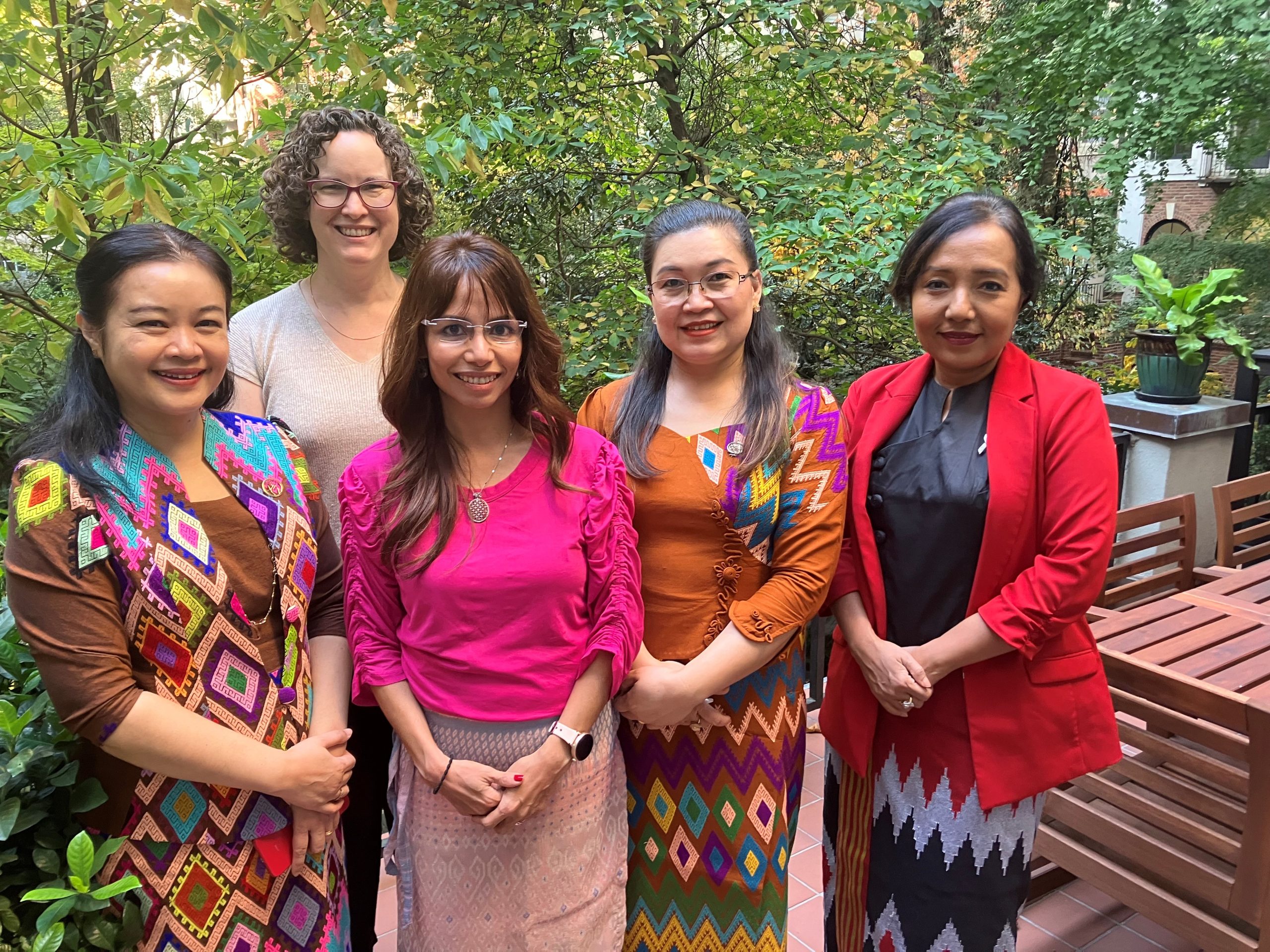In a recent meeting with diplomats, May Sabe Phyu of the Women's Advocacy Coalition – Myanmar shared that, “The only hope for any of us to live on is to see a new federal democratic Myanmar.” She made this point during a lunch gathering at Quaker House in New York on 23 October. The meeting brought New York-based diplomats together to meet with four representatives of the Women's Advocacy Coalition to learn more about the gendered aspects of the crisis in Myanmar.
Our guests spoke about the vital role that women have in Myanmar, especially in the context of peacebuilding. They gave examples from the previous decade, including the leadership role that women played as negotiators during ceasefire talks and the role of Aung San Suu Kyi as the country’s de facto head of state. They expressed Myanmar's challenges in implementing the Beijing Declaration, a global policy framework that aims to empower women and girls. The obligations of the declaration have been impossible to meet as women and girls have been subjected to heightened levels of violence due to the actions of the military. With 31 October marking the 24th anniversary of the adoption of Resolution 1325, which focuses on Women, Peace, and Security, this was a timely moment to focus on the need for protection and peace for women and girls in Myanmar.
The briefing also brought attention to the dire humanitarian situation facing the country. The UN Office for the Coordination of Humanitarian Affairs estimates that more than 3.3 million people have been internally displaced, and over 1 million are seeking refuge in neighbouring countries as the result of airstrikes and the burning of villages. The violence has prevented routine vaccinations from taking place. This, with recent flooding, has produced significant threats to public health. The speakers urged that members of the international community coordinate in order to increase humanitarian aid and ensure it reaches people in need.
This timely briefing also provided an opportunity for members of the Women’s Advocacy Coalition to express concerns about the upcoming election in Myanmar scheduled for 2025. There are worries about whether the election will be credible and democratic. The consequences of a sham election will be significant as it would misrepresent the will of the people of Myanmar.
Our guests noted that many in Myanmar are committed to ensuring that the military does not hold power through illegitimate means, and they are dedicated to building a new and inclusive country. In the words of Khin Lay, “We know there are concerns about the future stability of Myanmar and the possibility that the country will split apart without a strong military. But ethnic resistance groups are actively working to build trust and a peaceful future together.” As the conflict rages on, there is an opportunity to explore how this newfound unity can be used to lay the foundation for a peaceful Myanmar.
Meeting participants expressed gratitude for the opportunity to meet with our guests and better understand the gendered aspects of the crisis in Myanmar. They affirmed that the role of women in working towards peace is vital, and their protection should be a priority in times of conflict. QUNO was grateful for the visit by our partners from the Women’s Advocacy Coalition, and we look forward to future opportunities to work with partners from Myanmar so they can share valuable insights and advocate for sustainable peace.
Pictured from left: Phyu Phyu Lin, Kay Soe, May Sabe Phyu, Khin Lay from the Women’s Advisory Coalition – Myanmar, with QUNO Director, Sarah Clarke.







